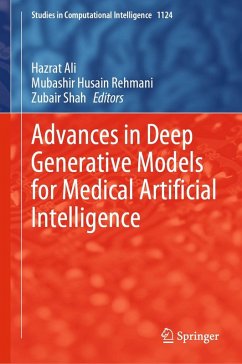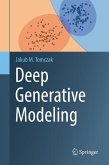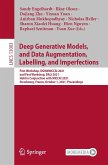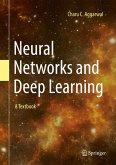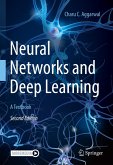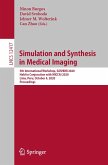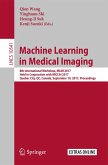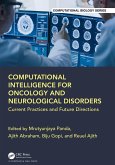Generative Artificial Intelligence is rapidly advancing with many state-of-the-art performances on computer vision, speech processing, and natural language processing tasks. Generative adversarial networks and neural diffusion models can generate high-quality synthetic images of human faces, artworks, and coherent essays on different topics. Generative models are also transforming Medical Artificial Intelligence, given their potential to learn complex features from medical imaging and healthcare data. Hence, computer-aided diagnosis and healthcare are benefiting from Medical Artificial Intelligence and Generative Artificial Intelligence.
This book presents the recent advances in generative models for Medical Artificial Intelligence. It covers many applications of generative models for medical image data, including volumetric medical image segmentation, data augmentation, MRI reconstruction, and modeling of spatiotemporal medical data. This book highlights the recent advancements in Generative Artificial Intelligence for medical and healthcare applications, using medical imaging and clinical and electronic health records data. Furthermore, the book comprehensively presents the concepts and applications of deep learning-based artificial intelligence methods, such as generative adversarial networks, convolutional neural networks, and vision transformers. It also presents a quantitative and qualitative analysis of data augmentation and synthesis performances of Generative Artificial Intelligence models.
This book is the result of the collaborative efforts and hard work of many minds who contributed to it and illuminated the vast landscape of Medical Artificial Intelligence. The book is suitable for reading by computer science researchers, medical professionals, healthcare informatics, and medical imaging researchers interested in understanding the potential of artificial intelligence in healthcare. It serves as a compass for navigating the artificial intelligence-driven healthcare landscape.
This book presents the recent advances in generative models for Medical Artificial Intelligence. It covers many applications of generative models for medical image data, including volumetric medical image segmentation, data augmentation, MRI reconstruction, and modeling of spatiotemporal medical data. This book highlights the recent advancements in Generative Artificial Intelligence for medical and healthcare applications, using medical imaging and clinical and electronic health records data. Furthermore, the book comprehensively presents the concepts and applications of deep learning-based artificial intelligence methods, such as generative adversarial networks, convolutional neural networks, and vision transformers. It also presents a quantitative and qualitative analysis of data augmentation and synthesis performances of Generative Artificial Intelligence models.
This book is the result of the collaborative efforts and hard work of many minds who contributed to it and illuminated the vast landscape of Medical Artificial Intelligence. The book is suitable for reading by computer science researchers, medical professionals, healthcare informatics, and medical imaging researchers interested in understanding the potential of artificial intelligence in healthcare. It serves as a compass for navigating the artificial intelligence-driven healthcare landscape.
Dieser Download kann aus rechtlichen Gründen nur mit Rechnungsadresse in A, B, BG, CY, CZ, D, DK, EW, E, FIN, F, GR, HR, H, IRL, I, LT, L, LR, M, NL, PL, P, R, S, SLO, SK ausgeliefert werden.

